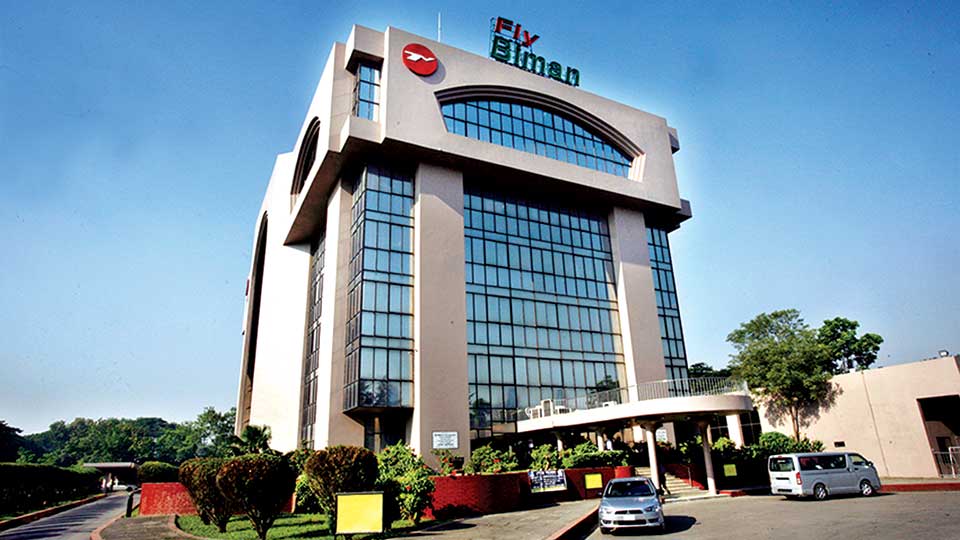
Dhaka : Biman Bangladesh Airlines-the national flag carrier, is 52 years old-fairly long time to be on solid ground operationally. Unfortunately, however, for various man made reasons, originating mainly from lack of professional management with vision and efficiency, this has not happened. In fact, the operation has shrunk and is still in disarray.
Biman has remained stuck in the quagmire of stagnation, mainly because of lack of planning, neglect and management inadequacy.
At times, with an old and unreliable fleet, Biman operated flights to 29 international destinations. However, now with an adequate numbers modern fleet, the number of international destinations has gone down to only 16. The management of the airline is to be blamed for this deplorable situation. Howe-ver, there has been some initiative to restore some of the old routes and add a few more new destinations.
The importance
The management is the key and one of the most vital areas of any airline and its efficiency greatly contributes to success. However, unfortunately, continuation of poor non-professional management, right from its birth, is hurting Biman even now-after more than five decades.
Improvement of Biman's management is long overdue. However, no step in this direction has ever been taken. Moreover, in addition to non-professional and not so efficient management, very frequent change at the top caused more harm.
No professionalism
Several years ago, one of the Ministers of State for Civil Aviation and Tourism acknowledged serious short-comings in the management and administration of Biman, saying, "Since its birth no professional people has handled the management and administration. The airline has never been run as a commercial organisation. This has resulted in severe lack of professionalism and commercial attitude. Overall, service has become the main casualty."
A casual look at the list of CEOs of Biman from the beginning to now will show, barring very few exceptions, all the CEOs are from civil and military bureaucracy, with no knowledge of running a commercial airline. Most of them were not even given adequate time to learn the trade and contribute in making Biman a dynamic airline.
A look at the history of the world airline industry will prove that the policy being followed by the government here in regards to selection of CEOs and their duration of stay is totally wrong. The policy has only harmed the interest of Biman. On average, the CEOs of Biman stayed in the job for less than two years-not enough to even learn a new job.
It is very difficult to understand the policy of the government in this regard. It is also very difficult to accept that persons concerned in the government did not and still do not understand that the airline is a different kind of highly sophisticated commercial establishment and needs a specially qualified person to run it. Yet, the government continued to post officers from different non-airline backgrounds and that too for a very short period in most cases.
No one can dispute that for persons with non-airline background, it will take time to be familiar and conversant with the operation of an airline. So, for outsiders, the stay would have been much longer. However, that was not the case, the government continued with the policy of frequent change of CEO.

Infusion of new blood
For the first in its history, Biman now has a fleet of new generation aircraft, however, it has not enough destination to serve and enough efficient manpower to utilise the fleet properly.
In the absence of infusion of new blood in the form of regular recruitment of young and qualified people in the management cadre, Biman has lost much of vitality and become an organisationswith no commitment, no vision and no drive.
While airlines all over the world got ready to face the reality, Biman, unfortunately, is still wedded to moribund systems, in all aspects of operation. The manpower and aircraft ratio of Biman is one of the highest in the world while productivity is one of the lowest. However, development of human resources is yet to receive the kind of attention it deserves.
Since its birth in 1972, Biman has failed to recruit proper manpower. This failure has created a vacuum in senior management of the airline.
Rebranding
The rebranding is considered an important requirement and a starting point for the organisation to become focused and enjoy a stronger position in the world air transportation market. Along with aircraft with new livery, offices, equipment, publications, uniforms and other aspects of the airline should also undergo an identity change.
All these should be designed to support the airline's future direction, enhance its position among world carriers, assist in providing distinctive customer services and enhance employee loyalty. This in turn will increase productivity and revenue, reduce costs, achieve profits and pave the way to privatisation.
So, restructuring and induction of professional management became very essential to accomplish these jobs. However, unfortunately, the efforts that were made to find experienced international operators to assist in getting professional management as well as re-structuring Biman to make it more dynamic, more flexible with rapid response to market demands and customers' needs, stopped after the change of government. There is no sign of revival of the effort.
New start
To have a fully productive new start for Biman, there is no alternative but to make sure that all involved must be well equipped to rise to higher standards so that the airline can keep pace with the rapid, progressive changes in the industry. Professional management is key in this regard and is vital for Biman.
Management and fleet are the two vital areas of any airline and efficiency of both greatly contributes to success. However, unfortunately, for most of its life, these two areas were the weakest in Biman. Now, the fleet situation has improved, however, improvement of management is long overdue.
The industry is now moving into a new era of massive change in every field embracing accelerated technological developments, a series of marketing innovations and the globalisation of company management and ownership. These changes bring with them concomitant shifts in terms of new strategic alliances as well as immense communications networks and comprehensive automation..
Now attention must be focused to resolve key problems. Policy makers must demonstrate their understanding of the importance of the problems with more clarity and decide immediately the way to tackle these. A realistic understanding of the importance of the consequence of correct timely action and failure to do so must be there.
Under these circumstances, Biman most urgently needs professional management to run the airline efficiently and commercially. There is hardly any doubt that survival and success of airline business depends on a number of key factors. Perhaps, the most important is fitness to do business being correctly equipped in terms of management skills, training, marketing strategy, tactics and financial health.







